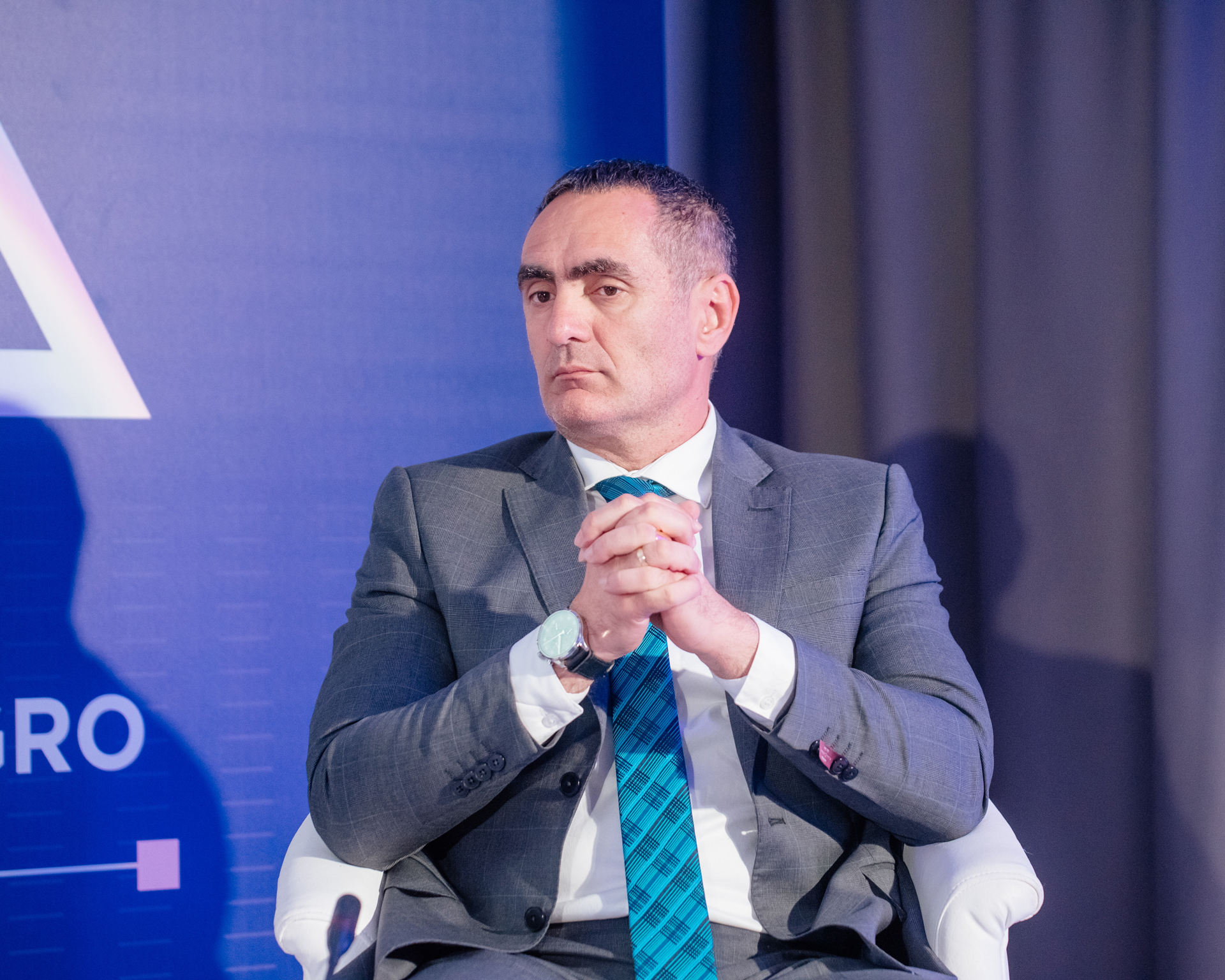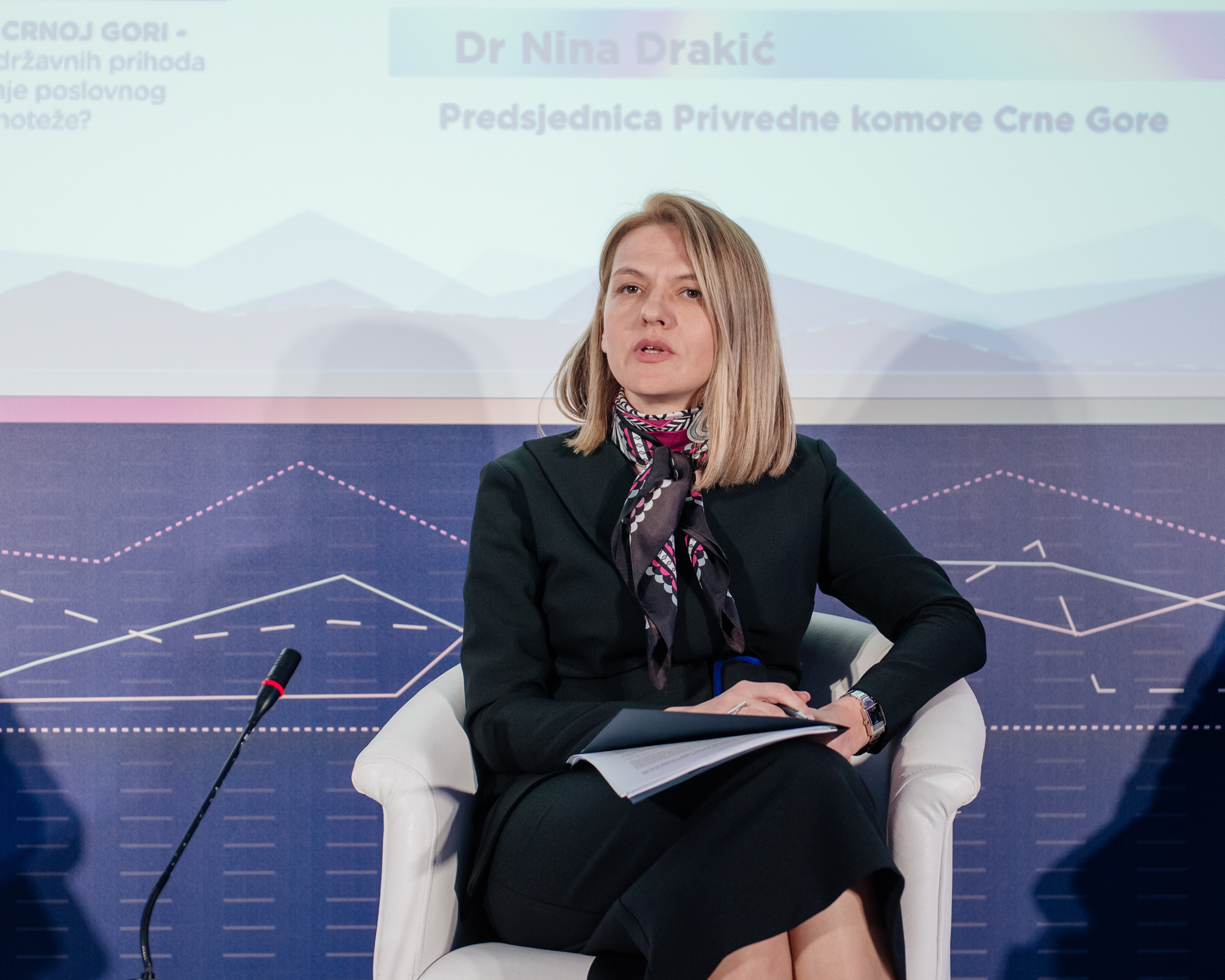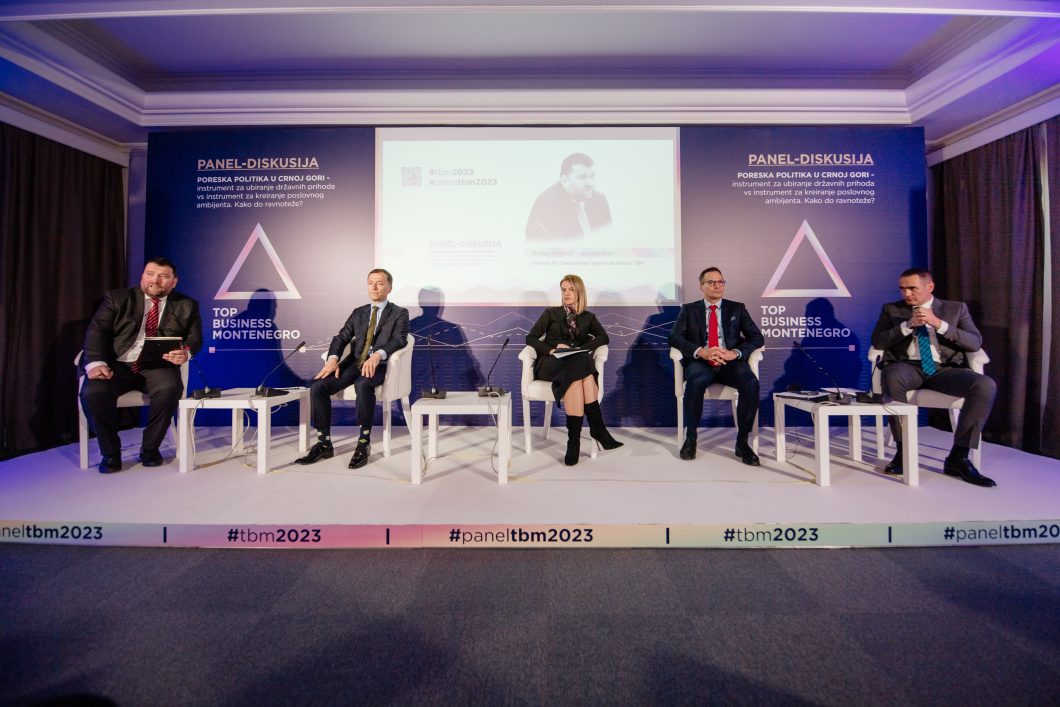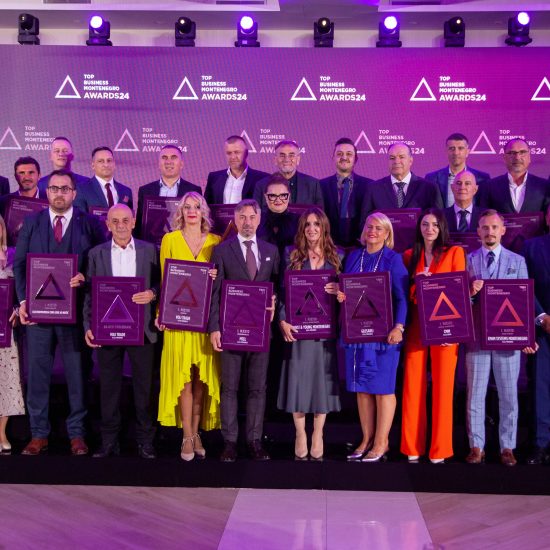Tax Policy is the Most Important Economic Policy Tool
Tax policy is the most important economic policy tool, particularly for countries that do not have their own currency. This is the message delivered at the panel discussion “Tax policy in Montenegro – a Tool for State Revenues Collection vs a Tool for Creating Business Environment. How to strike a balance?”, organised within the Top Business Montenegro (TBM) initiative. Not only do budget revenues depend on tax policy, panel participants have suggested. Instead, it also affects employment, investments, income, the level of the informal economy, as well as migration.
Mr Ratko Nikolić, the BI Consulting founder and TBM chief analyst, has specified that Montenegro is an attractive business destination in terms of taxes, as a euro-based economy that does not have its own monetary policy tools.

In his opinion, Montenegro wanted to profile itself as a country with low tax rates in years following its independence, and one could say that it has succeeded in this effort. A reasonable explanation for such an approach, as he has elaborated, is the fact that the country was not sufficiently developed and attractive in other elements that comprise a business environment, such as legislation, knowledge and human resources, access to finance, political stability, infrastructure, transport accessibility.
“Major changes have happened in that system in the meantime, first through modifications of the VAT rate in 2013 and 2017, then through some temporary tax measures, and then in 2021 the biggest changes in personal income tax and corporate income tax rates took place, through introduction of progressive taxation. In addition to the modification of tax rates, there are proposals to impose some new types of tax, and an open debate on the topic of reconsideration of the policy of low tax rates is also underway, which has an additional unsettling effect on the business community, increases business uncertainty and threatens the predictability of the business climate,” Nikolić has said.
Mr Milorad Katnić, professor of the Faculty for International Economics, Finance and Business, has said that tax policy is the most important economic tool, but that it cannot solve institutional weaknesses of a system alone.

“Personal and ownership security, efficiency of contract execution, levels of informal economy and corruption in the society, infrastructure, market size, workforce, knowledge, competences, openness, currency stability, and stability of prices and inflation are of primary importance for the economy, investors and the business community. Taxes are necessary, but they are not a sufficient precondition for a community, economy to be attractive to investors,” he has said.
Mr Katnić has also explained that tax policy is a very important and sensitive tool, the consequences of which can be seen in the medium and long term. “Even when institutional arrangements are in place, when we have the rule of law, regulated ownership relations, efficient judiciary and contract execution, tax policy can “demolish” the tax system,” he has explained.
Mr Katnić has also pointed out that the informal economy in our region is not only a taxation issue, but also a cultural problem. . “A study in Montenegro has shown that people do not perceive failure to pay taxes as a bad thing, but as a common practice in their society. This cultural problem and practice should be changed to create a proper environment and expand the tax base for more regular tax payments and less informal economy”, Mr Katnić has said.
Mr Aleksandar Damjanović, the Finance Minister, has agreed that the tax climate in Montenegro is favourable and predictable, and added that a stable tax policy is important, but that it cannot be an alternative to an efficient judicial system, proper spatial planning, and to the strict compliance with contractual commitments.

He has said that the public finances of Montenegro are in “a very good condition”. “We have a quarter of a billion euros in the treasury, we manage to settle all our obligations, including a 20-25% increase of public sector salaries, which have not been increased properly since 2016 “. He believes that the state will need to think about tax benefits for regular taxpayers, and pointed to the paradox that Montenegro is a country of low taxes, but high level of informal economy, tax debt and social differences.
He has recalled that, within anti-crisis measures, the Government cut down the fuel excises from May 2022 to February 2023, which meant 56 to 58 million euros of less revenues for the national budget. The VAT on basic foodstuffs has also been reduced, and efforts have also been made to reduce the informal economy.
“We have passed a dozen laws addressing the core of informal economy. We are endeavouring to increase the inflow of tax revenues in the current year through strengthened tax discipline. We are trying to maintain the predictability, as evidenced by foreign investments that are at the record level again. This means that Montenegro is still perceived as a country with attractive tax rates, a country worth investing in,” minister Damjanović has said.
Ms Nina Drakić, the president of the Montenegrin Chamber of Economy, has said that the business community expects economic and tax policy to be managed to support the economy and its further development and diversification, and thus give momentum to the progress of the entire s ociety.

“We believe it is very important for tax policy to be transparent and predictable, so that businesses know about tax rates in time, which taxes they will have to pay, and align accordingly their business plans. In addition, it is very important to involve the business community in tax policy making, as well as in proper analyses of the tax policy impact, i.e. analyses of proposed tax solutions and their impact on the business community and our economy,” she has said.
Ms Drakić believes that when tax policy is drafted, one must also take into consideration an important segment: the informal economy. “Tax policy affects the level of informal economy. It is, therefore, important to have accurate and clear tax regulations, a simple way to determine tax obligations, and thus encourage taxpayers not to become part of the informal economy, but to do business legally. And what would be positive is to develop a system of incentives for regular taxpayers,” she has said.
Ms Drakić has pointed out that Montenegro is still considered a country with a relatively competitive tax policy, and that she hopes that this trend will continue. She believes that the question whether a progressive tax rate is the right model for attracting investors should be considered additionally.
Mr Tamas Kamarasi, the chair of the CKB Board of Directors and the chair of the Foreign Investors Council, has said that foreign investors take into consideration a number of parameters before making a decision on investing in a country, in addition to its tax policy.

“Rule of law, transparency and political stability, bureaucracy and procedures, but also the market’s potential, human capital and opportunities for employee training are all considered in detail and influence the decision of foreign companies. Deficiencies or challenges in these segments deter foreign investors and make their business operations more difficult. So, tax policy is of great importance, but as part of a broader system that is relevant for foreign investors”, he has pointed out.
Kamarasi has recalled that Montenegro still has a lower-than-average profit tax rate. However, tax cuts are a trend in most economies, so increases may cause concern for the long-term attractiveness of Montenegro as an investment destination.
Watch the video with the panel discussion.






